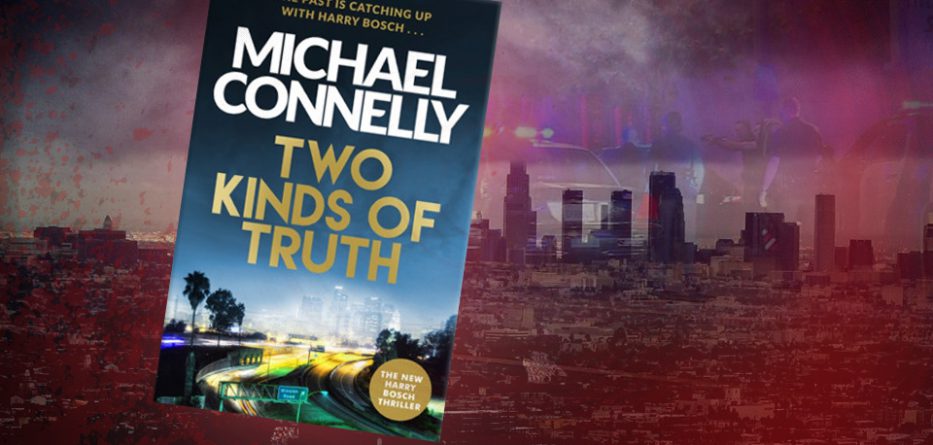Like many of Connelly’s recent Bosch outings, there are essentially two cases or narratives circling through Two Kinds of Truth, but though the publicity blurb promises that – once again – they’ll dovetail together, there’s resolutions to both that doesn’t mean they collide in an unlikely fashion.
Bosch finds that a decades-old case, which resulted in a rapist and alleged-killer Preston Borders, being locked up, is being re-opened. The accusation from the Death Row inmate and his lawyer is that not only is the felon innocent but that Bosch planted evidence that led to that incarceration. Bosch knows that he did everything by the book, but is baffled as to how newly-tested DNA from the case seems to back up Borders’ version of events. The evidence had been sealed away in the police’s own secure facility, so what’s the explanation? Realising that the police department may throw him (or his late partner) under the proverbial bus to avoid a bigger scandal, Bosch has only a few days before a judicial hearing that could determine his future in law enforcement. Desperate times call for desperate measures and the best lawyer in the business is Bosch’s own half-brother Mickey Haller. But how far is Haller willing to go to help Bosch?
The ‘contemporary’ story is a topical look at the opioid epidemic, a vicious, ongoing spiral which – as the novel notes – is nowhere near being addressed properly because it makes far too much money for all involved. It’s easy for everyday people to become addicted to pain-killers and the like and with big pharma making a huge profit, combined with major negative shifts in the aspects of insurance and healthcare, there are those involved in the black market who can fill the gap. As we see, such entrepeneurs are often far from altruistic, helping perpetuate the problem and making tens of thousands of dollars every day from fraudulent supply and demand. It’s into this quagmire that Bosch heads undercover in an effort to stop the drug ring that were involved in the pharmacy killing – but he finds it’s an investigation complicated by various agendas.
Amazingly, this is the twentieth outing for Bosch and it’s a tribute to Connelly that the detective remains a believable character with consistent attitudes but actual growth. He’s neither flawless superhero nor flawed victim, but a man with a career in law enforcement who genuinely believes that everyone matters or no-one does – a dogged gumshoe who takes the bouquets and barbwire as needed. By now he also has a rich seam of supporting characters, from past partners (with whom he has differing standings), family (extended, such as Haller and more obviously in the shape of daughter Maddie, now off on her own)
Connelly almost resists the need to mention the ‘fictional’ screen universe, though a nod to Matthew McConaughey’s portrayal of Mickey Haller slips in under the wire more comfortably than the reference to a Bosch series in Connelly’s other 2017 release, The Late Show. The Bosch series is great television but it might be better to simply ignore its presence in the written version rather than try to promote or squeeze it in.
Again, that’s a minor niggle. There have been two books from Connelly in the last twelve months and that’s a good year in anyone’s books…
Two Kinds of Truth by Michael Connelly is published by Orion Books and is out now.











